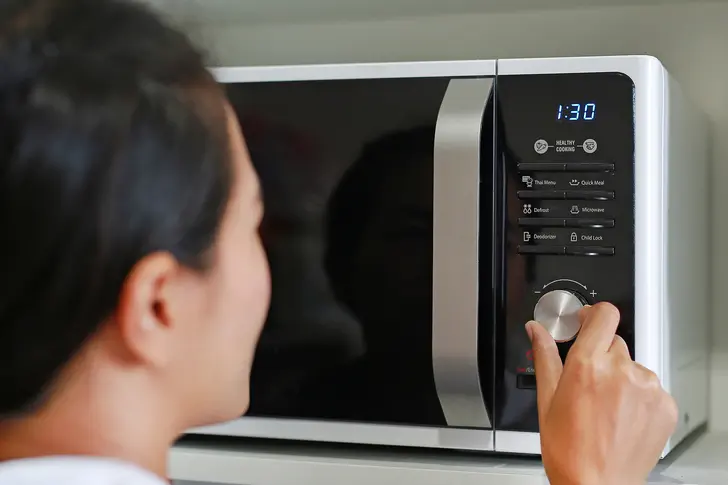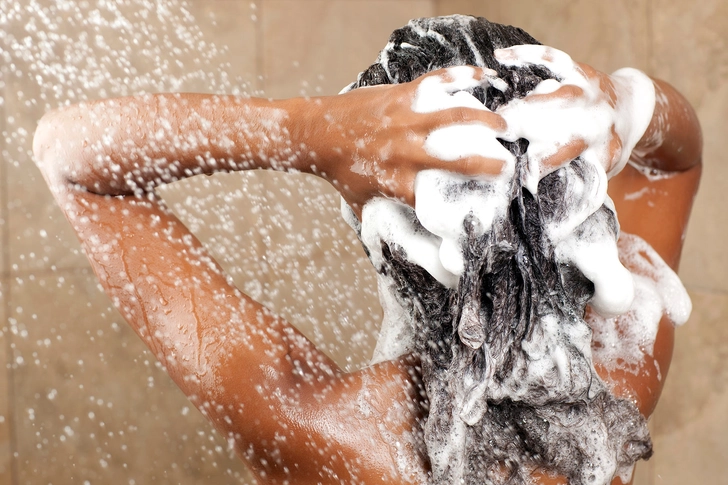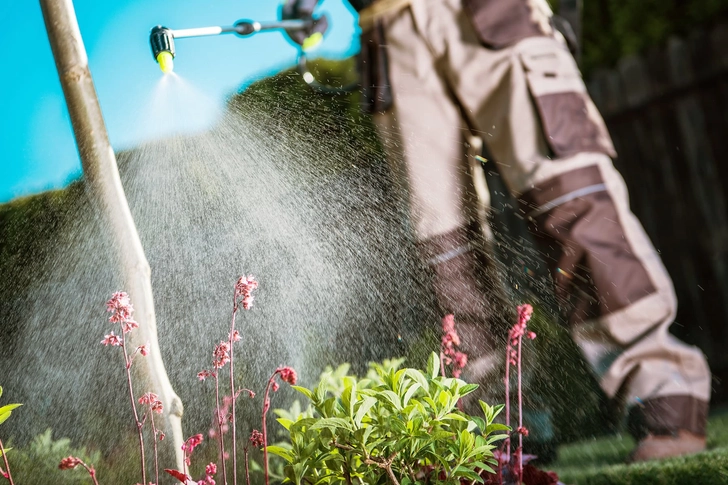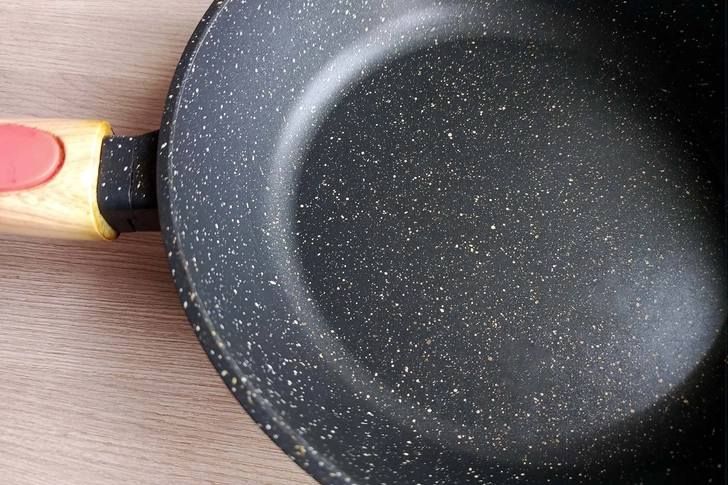- Overview
- Symptoms
- Risks, Prevention & Screening
- Tests & Diagnosis
- Types
- Your Breast Cancer Care Team
- Treatment
- Living With Breast Cancer
- Remission & Recurrence
- Advanced Breast Cancer
- Support & Resources
- Appointment Prep
- View Full Guide
7 Types of Potential Toxins to Watch Out for When You Have Breast Cancer



Potential Toxins and Breast Cancer: What to Know
Any substance that’s poisonous or does damage to your cells can be toxic. Many products in your own home, including some you may use daily, have potentially harmful chemicals. Some of them may be carcinogenic, meaning they can cause cancer. Other substances disrupt hormones in your body and may change how your body interprets those chemical messengers. These kinds of substances used to be called "endocrine-disrupting compounds," but today, they’re known as "hormone disruptors." Even though we need more research to know how potential toxins and hormone disruptors impact breast cancer and breast cancer recurrence, you may want to avoid these substances when you can — especially when you have hormone receptor-positive (HR+), HER2-negative breast cancer or a history of breast cancer that grows in response to hormones. Here are some common substances to look out for.

Chemicals in Plastic
Plastic is a material used in food packaging and other household products. When your food touches plastic, some of the plastic can wind up in your body. One study found 143 potential carcinogens related to breast cancer that can get into food via plastic packaging. Tiny bits of plastic, called microplastics, are widespread, too. To avoid chemicals in plastics when you have breast cancer:
- Avoid (or limit) canned foods.
- Choose plastics that are considered safer to use, such as those with recycling symbol 2, 4, or 5.
- Don’t microwave food in plastic containers or steaming bags.
- Use ceramic, glass, or stainless steel instead of plastic cups or water bottles.
- Use pots and pans made of enamel-covered metal, glass, porcelain, or steel.

Fragrance Chemicals
About 4,000 different chemicals give perfumes and similar products their scent. These turn up in shampoo, lotion, floor cleaners, air fresheners, and more. It hasn’t been proven that using scented products will increase your risk of breast cancer (or increase the risk of it coming back). But studies of animals that came into contact with very high amounts of these chemicals have suggested a link to cancer. To stay on the safe side, many people choose products that are unscented or fragrance-free. But keep in mind, even "unscented" products may still have some of these chemicals. Buy from companies that publicly list their products’ fragrance ingredients.

Pesticides
Pesticides help to grow many of the fruits and vegetables that you eat. But leftover chemicals can end up in your kitchen or on your plate. Chemicals from pesticides may even get into your body through drinking water or when you use pesticides in your own yard. There’s some evidence linking very high pesticide exposures to increased breast cancer risk. Some pesticides also act as hormone disruptors. But we need more research to know the true impacts of pesticide chemicals on breast cancer risk. To cut your exposure to pesticides, choose organic over conventionally grown produce. Consider shopping directly from farmers at your local farmers market, where you can get to know their practices.

Nonstick Coatings on Cookware
The coatings on cookware that help keep your food from sticking include chemicals known as PFAS (short for "perfluoroalkyl and polyfluoroalkyl substances"). They’re sometimes called "forever chemicals" because they don’t break down easily. For example, researchers have found low levels of PFAS in nearly everyone’s blood. Small amounts of PFAS often are found in foods, drinking water, and even the dust in your house, too. Some studies in animals link these chemicals to breast tumors. But results from studies in people are mixed. To avoid PFAS in your pots and pans, choose stainless steel or cast iron over nonstick.

Personal Care Products
Products you use for personal care, including cosmetics, hair dyes, shampoos, and tampons, have a wide range of chemicals. It's hard to prove any one of these chemicals — or their combinations — cause breast cancer. We need more research to know for sure. But many of these ingredients can disrupt your hormones. They may act in your body as if they were estrogen. When you have breast cancer that grows in response to hormones, you may want to limit your use of personal care products. If you want to do so, avoid using products with parabens or phthalates in them. Choose more products with fewer ingredients and check their labels carefully.

Alcohol
Studies show women who drink alcohol are more likely to get breast cancer compared to women who don’t. In fact, just one drink a day is enough to increase your risk. The risks go up the more you drink. But one study of more than 3,500 women who had breast cancer and drank alcohol after their diagnosis didn’t show more risk of a recurrence or dying from the cancer. Still, alcohol is a known carcinogen, which means we know it can cause cancer. So, it's best to drink alcohol in moderation, if at all. Talk to your doctor if you have concerns about your drinking and what it may mean for your breast cancer.

Household Cleaning Products
The cleaning products you use in your kitchen, bathroom, or to wash your laundry may have chemicals known to disrupt hormones, too. But like most chemicals, we need more research to know what that means with regard to breast cancer and cancer recurrence. To avoid the uncertainty that comes with products that have many chemical ingredients when you have breast cancer, steer clear of products with warning labels and fragrances. Consider making your own cleansers from basic ingredients, such as baking soda, dish soap, or lemon juice. Always wear gloves to keep cleaning products off your skin.

Making Informed Decisions
The best way to take care of yourself when you have breast cancer is to get informed and follow your doctor’s advice. Even though many chemicals in your home may affect your breast cancer risk, the evidence is mixed. It’s important to know the facts without letting yourself get overwhelmed. Ask your care team if there are certain products or ingredients you should especially avoid. To lower your toxin exposure in general, try these tips:
- Get your information from trusted sources.
- Follow warning labels.
- Take a look at the products you use most.
- Avoid plastics when you can.
- Limit fragrances and scented products.
Photo Credits:
1) iStock/Getty Images
2) Tetra images/Getty Images
3) E+/Getty Images
4) iStock/Getty Images
5) iStock/Getty Images
6) iStock/Getty Images
7) E+/Getty Images
8) iStock/Getty Images
9) E+/Getty Images
SOURCES:
Gupta, P. Illustrated Toxicology, Academic Press, 2018.
World Health Organization (WHO): "No level of alcohol consumption is safe for our health."
National Institute of Environmental Health Sciences (NIEHS): "Endocrine Disruptors."
Breast Cancer Prevention Partners: "Exposures to Avoid," "Fragrance."
Michigan State University: "Real-time science – What's plastic?"
Frontiers in Toxicology: "Potential mammary carcinogens used in food contact articles: implications for policy, enforcement, and prevention."
Cancers: "Derivatives of Plastics as Potential Carcinogenic Factors: The Current State of Knowledge."
Breastcancer.org: "Exposure to Chemicals in Plastic," "Exposure to Chemicals in Cosmetics."
Journal of Environmental Health Science & Engineering: "Evaluation of pollutants in perfumes, colognes and health effects on the consumer: a systematic review."
Science of the Total Environment: "Pesticide exposure and increased breast cancer risk in women population studies."
American Cancer Society: "PFOA, PFOS, and Related PFAS Chemicals."
San Francisco Environment Department: "All about 'forever chemicals' in non-stick pans."
Cancer Council: "Do fragrant products like perfume, toilet paper and baby wipes cause cancer?"
MD Anderson Cancer Center: "Alcohol and breast cancer risk: What to Know," "7 tips for reducing household toxins."
Kaiser Permanente: "Drinking alcohol not likely to increase risk of a breast cancer recurrence."
Harvard Medical School: "Cancer concerns from everyday products."
NYC Health: "Safe and Green Cleaning Products."
National Cancer Institute: "Breast Cancer Prevention."